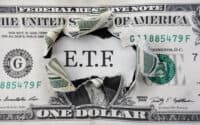The chances of a bailout of some of Europe’s financially weakest nations, which appeared promising two weeks ago, unravels more by the day. European Central Bank President Mario Draghi made a widely publicized comment that the central bank would work with the region’s big bailout fund to stabilize the situation in the region. His announcement was countered by German interests, which have grown concerned about departures from the austerity programs agreed upon by Greece and Spain.
And the deficit problems in these countries have worsened because of unemployment and the lack of business production, which will make their deficits and national debts grow. There is still no reason to believe that the initial bailouts of these countries, whether they are in the past or future, will not be followed by others. The confusion was highlighted today as Italian prime minister said that slow action on bailouts risks a break-up of the European Union. His observation comes a little late.
Douglas A. McIntyre
Thank you for reading! Have some feedback for us?
Contact the 24/7 Wall St. editorial team.



